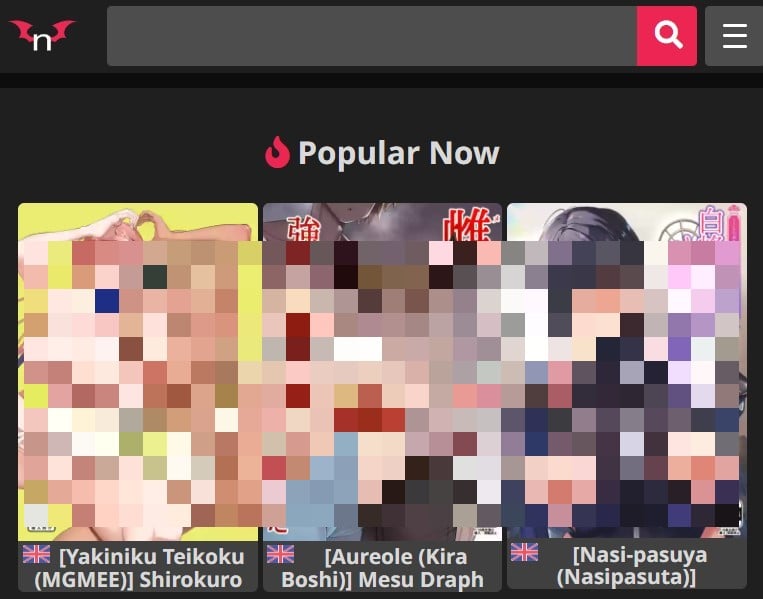-
chevron_right
Threatening Anti-Piracy Messaging Fails to Stimulate Intent to Subscribe
news.movim.eu / TorrentFreak • 8 September, 2024 • 5 minutes
 After years of anti-piracy campaigns, there’s a tendency to wonder whether the secret sauce of success is right around the corner or just as elusive as it’s ever been.
After years of anti-piracy campaigns, there’s a tendency to wonder whether the secret sauce of success is right around the corner or just as elusive as it’s ever been.
Yet, even briefly considering the perspective of those creating these campaigns can be a fairly sobering experience. There’s a blank sheet of paper and this campaign has to work, what can it possibly say that hasn’t been said before?
Even more important than simply being original, is there a type of messaging that won’t be ignored or ridiculed straight off the bat, yet goes on to deliver real results?
While advertising agencies will always claim to have a great solution, the default for most anti-piracy messaging is negativity, with few campaigns reaching the public without at least some element of fear.
Whether the fear focuses on direct consequences for the consumer or the broader impact on others, it’s often amplified by direct threats.
There Must Be a Better Way
Published on Thursday by researchers at the prestigious Autonomous University of Madrid (la Autónoma), Incentivizing SVOD Platform Subscription Intention through Tiered Discounts and Anti-Piracy Messages acknowledges the challenge piracy presents.
Rather than focusing on the negatives, the researchers argue that a more positive approach, one that incentivizes people not to pirate while acknowledging loyalty, can improve relationships with customers, make them happier, and even lead to improved profitability.
Some platforms offer better prices in exchange for a one-year subscription commitment, but tiered discounts based on subscriber loyalty are much less common. The researchers say there’s almost no public research on their effectiveness. With their study, which also examines two types of anti-piracy messaging, they aim to fill that gap.
Effectiveness and Conditions
Through a nationwide survey in Spain, the researchers asked 883 subjects who subscribe to streaming platforms and make use of illegal sites, to report their intention to subscribe to a hypothetical new platform (‘Flixio’) constructed by the researchers. The study had two objectives:
• Identify the conditions under which the intention to subscribe to an SVOD platform is enhanced by four types of incentives (tiered advertising/loyalty discounts and prosocial/threatening anti-piracy messages)
• Explore the extent to which each type of incentive and the evaluation of platform content comparatively contribute to enhance subscription intention
So what combinations worked best for Flixio and why?
Tiered Advertising Discounts
In respect of Tiered Advertising Discounts , the study found that users’ opinions on advertising in general predicted to a high degree whether they were satisfied with the tiered offer. For example, the discounted ads tier satisfied users with a more positive attitude towards advertising. The advertising-averse were satisfied by paying the full price and seeing no ads.
“This result can be understood through social exchange theory: SVOD platforms can improve their relationships with users by offering tiered advertising discounts that match the specific dispositions of the different user groups, each of which will perceive a better cost-benefit balance in customized contract terms,” the study notes.
In general, platforms should run ads that users view positively and ditch those they do not. When consumers have a positive attitude towards a platform’s ads, tiered advertising discounts should become more attractive.
Tiered Loyalty Discounts
The study found that the interaction between loyalty level and attitudes to loyalty shows that subscription intention was enhanced by offering tiers with enough variety to satisfy a range of attitudes.
By offering appropriate discounts to those with a positive attitude to loyalty, and offering non-discounted rates still pleasing to the loyalty averse, subscription intention was enhanced along with the opportunity to build stronger relationships with users.
“In addition, this incentive should not only be aimed at retaining subscribers, but also at strengthening the perceived utility of being loyal users, because rewarding loyalty has a well-documented reinforcing effect on loyal attitudes and behaviors,” the researchers add.
Prosocial Anti-Piracy Messaging
The study considers two main types of anti-piracy messaging. The first, prosocial messaging , asks pirates to consider the effect of their consumption on others, such as harm to film industry workers and how piracy compromises the quality of future productions.
The researchers say that confirmation of this approach may help to explain why prosocial anti-piracy messages are sometimes seen as effective and why sometimes they are not.
“The effectiveness of these messages depends on whether the user of pirated SVOD content perceives them as sufficiently credible and has enough sensitivity to justice. If a prosocial message is not believable, illegitimate users will easily criticize its content and continue to justify their unauthorized behavior,” the study found.
“If illegitimate users are not sensitive enough to recognize themselves as perpetrators and benefactors of an injustice against copyright holders, the message will not have the desired effect.”
On a practical level, those deploying this type of messaging should assume that it will be ineffective against lower justice-sensitive users. On the plus side, when messaging contains “highly credible claims and arguments” higher justice-sensitive users are likely to be persuaded.
Even Credible Threats Are Ineffective
The second type, Threatening messaging , asks pirates to consider the potential negatives, such as being caught and having to deal with the consequences in the legal arena.
The study’s findings on the effectiveness of threats surprised the researchers. Even when people found the threats credible and also feared punishment, the likelihood of them subscribing to legal platforms did not increase. The paper mentions two possible reasons for this outcome.
First, while the threats may have discouraged piracy, they didn’t necessarily motivate people to pay for content. Second, the particularly strong threats used in the study may have backfired, triggering a defensive reaction and resentment towards the message sender. This aligns with the psychological theory of reactance, where people resist attempts to limit their freedom.
Overall, the researchers suggest that overly aggressive anti-piracy messages are not an effective way to motivate people to subscribe to legal streaming services.
Conclusion
The study ultimately concludes that, by offering tiered discounts in exchange for advertising exposure, and by acknowledging and rewarding loyalty with discounts supported by prosocial anti-piracy messaging, streaming platforms can improve relationships with consumers and enhance business.
In many respects, the findings in the study boil down to common sense. When companies meet or exceed subscribers’ expectations, customers tend to be happy and in turn, that contributes positively to loyalty. When expectations are not met the opposite is true and no amount of threats will ever change that, or repair any shred of loyalty left behind.
That may be why threat model never goes away; it poisons a generation of consumers and just when it fades, people run out of innovative anti-piracy ideas. Then the cycle begins all over again, with threats that become more exaggerated as the years roll by, with the same predictable results.
Incentivizing SVOD Platform Subscription Intention through Tiered Discounts and Anti-piracy Messages (Ignacio Redondo, Diana Serrano) is available here (pdf, not peer-reviewed)
From: TF , for the latest news on copyright battles, piracy and more.

 In recent years, rightsholders of major sports events have repeatedly complained that piracy of live sports is rising through the roof.
In recent years, rightsholders of major sports events have repeatedly complained that piracy of live sports is rising through the roof.

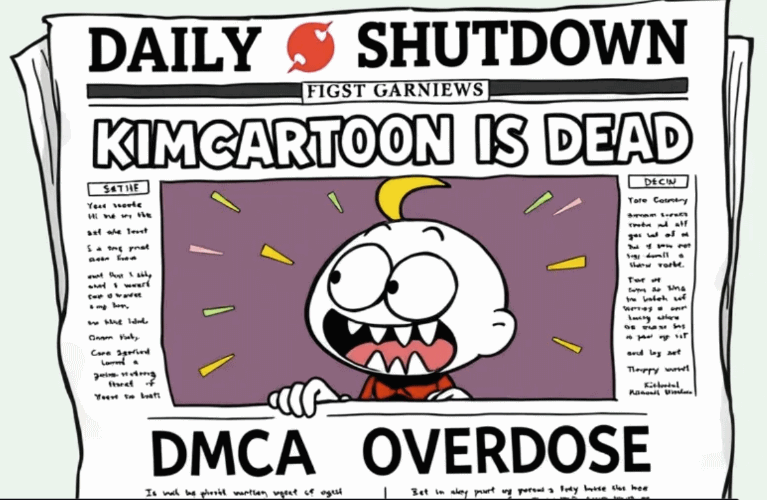


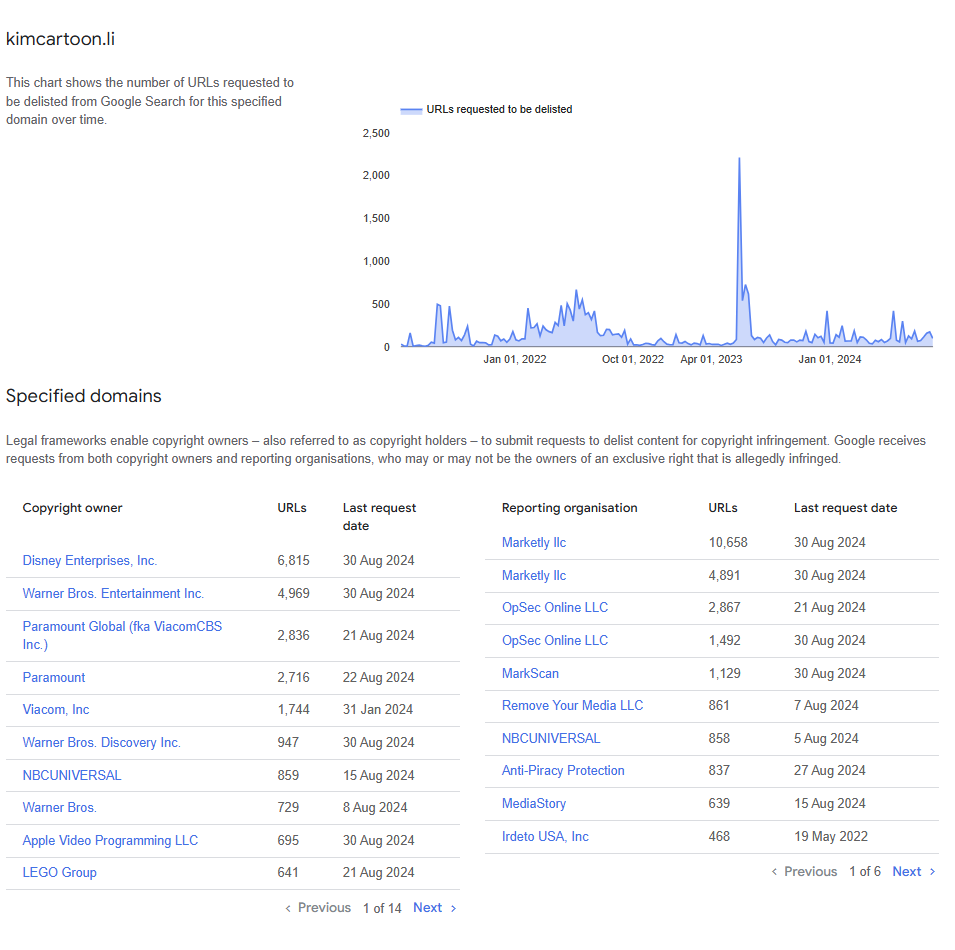
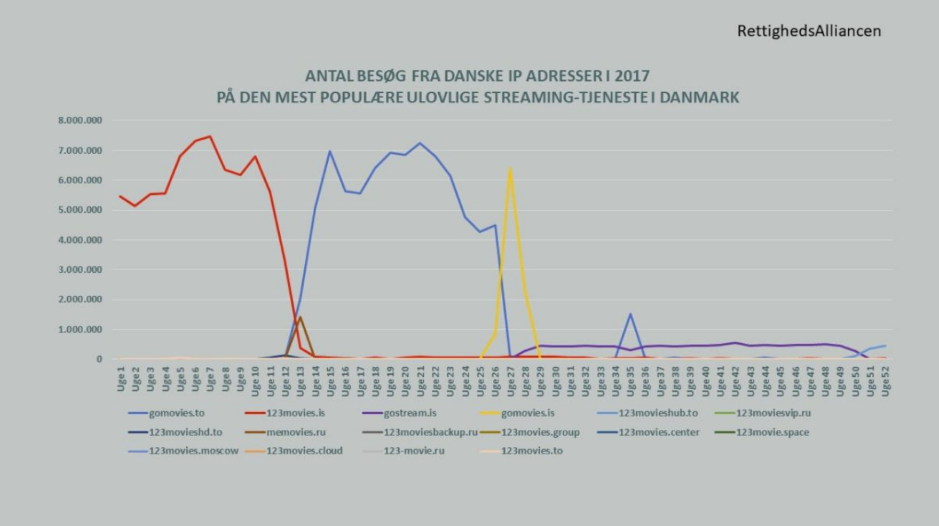
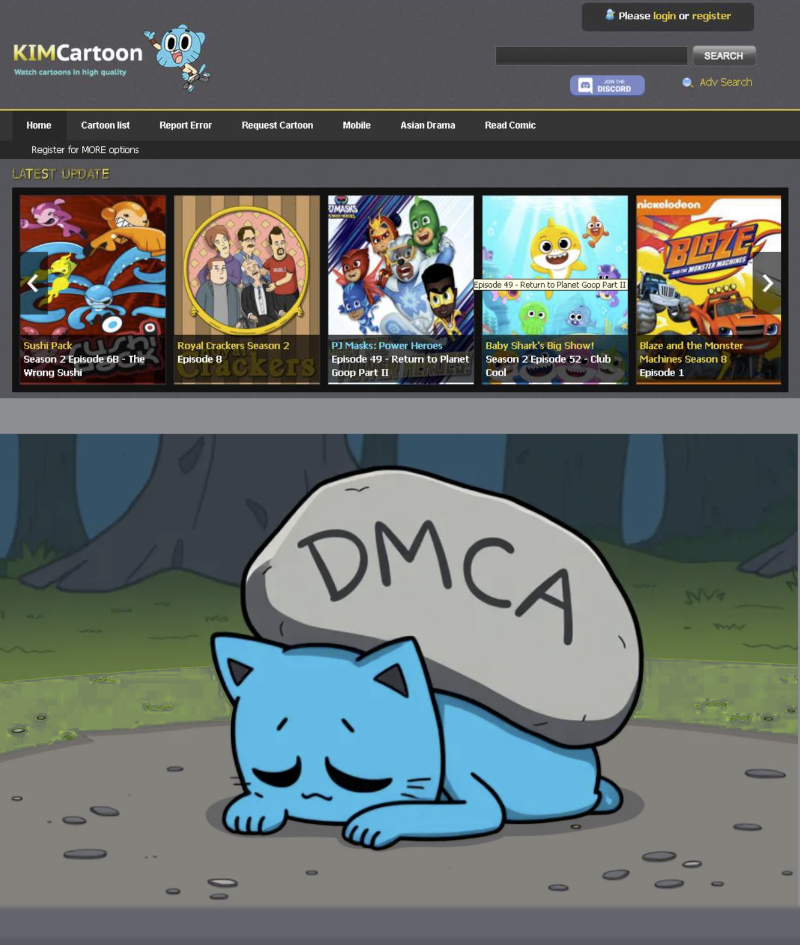
 The web is riddled with copyright infringing content, ranging from full-length blockbuster films, through small music samples, to reposted celebrity photos on social media.
The web is riddled with copyright infringing content, ranging from full-length blockbuster films, through small music samples, to reposted celebrity photos on social media.


 In 2020, publishers Hachette, HarperCollins, John Wiley and Penguin Random House sued the Internet Archive (IA) for copyright infringement, equating its ‘Open Library’ to a pirate site.
In 2020, publishers Hachette, HarperCollins, John Wiley and Penguin Random House sued the Internet Archive (IA) for copyright infringement, equating its ‘Open Library’ to a pirate site.

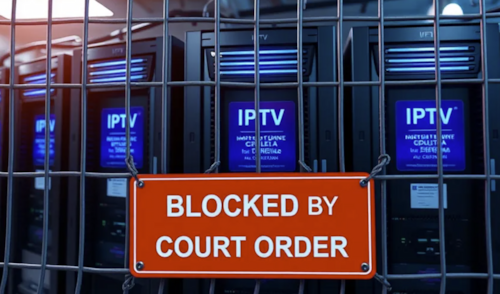
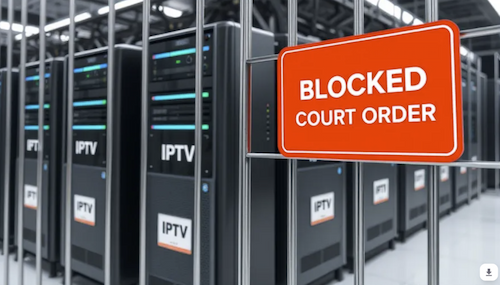


 For a torrent site, TorrentGalaxy is still a relative newcomer. The site is barely seven years of age while others have been around for over two decades.
For a torrent site, TorrentGalaxy is still a relative newcomer. The site is barely seven years of age while others have been around for over two decades.




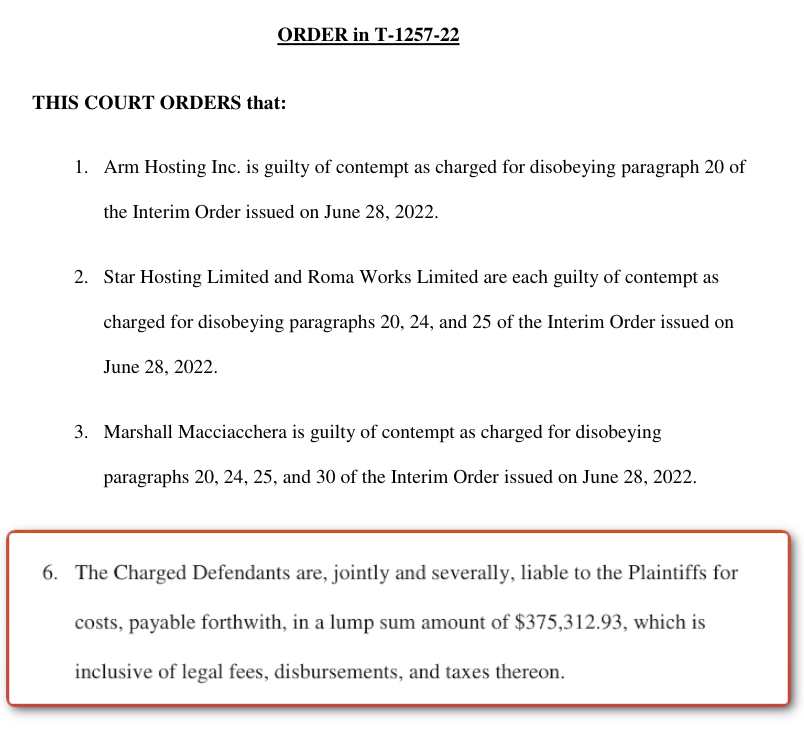
 Manga and anime have become increasingly popular in recent years. These formats originate in Japan, but they are now popular
Manga and anime have become increasingly popular in recent years. These formats originate in Japan, but they are now popular
